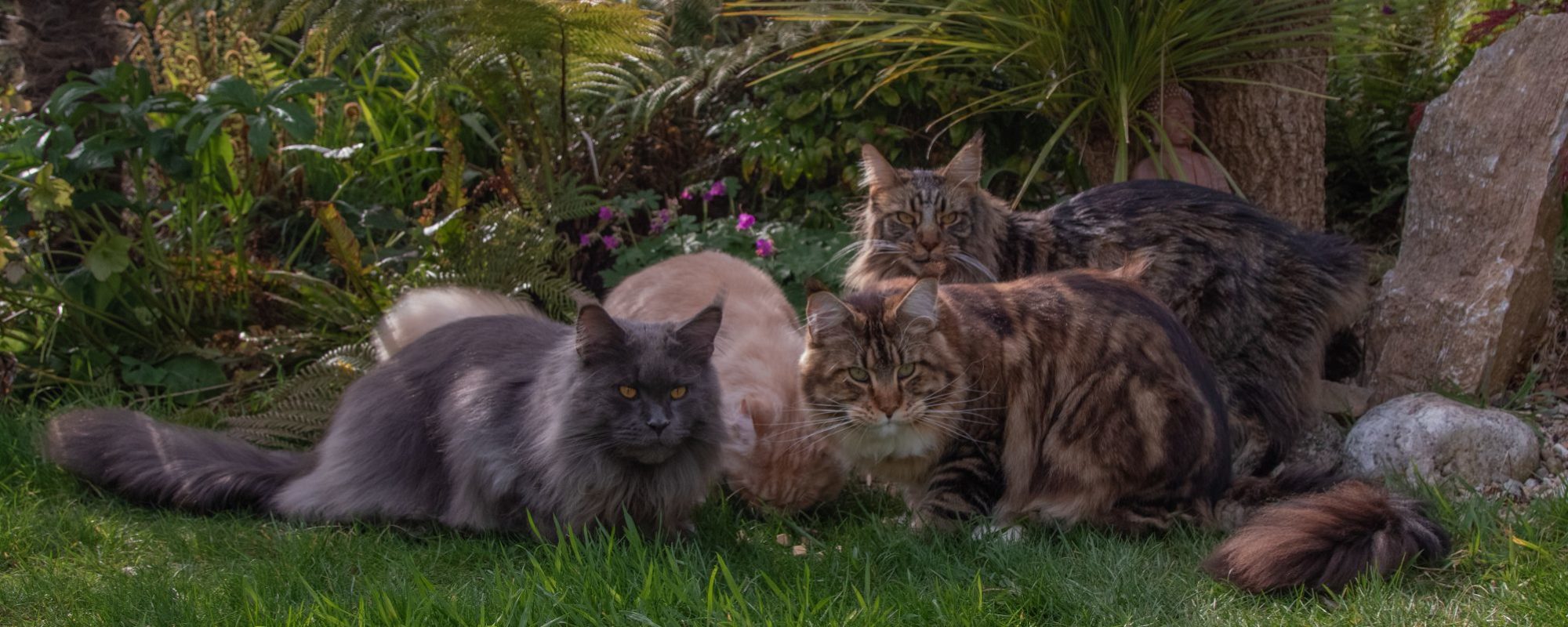As I am often asked what to look out for when buying a pedigree kitten, here is a quick guide of dos and don’ts when embarking on buying your pedigree Maine Coon kitten/cat. Unfortunately, many people when starting to search for their kitten want it as soon as possible and are not prepared to wait and hence often forget about the most important and basic aspects that I have summarized below. Please keep in mind, a pet is for life and you want a healthy, well socialized companion that ideally also conforms to the breed standard.
1) Health: Make sure the breeder you are buying your kitten from is doing all the necessary health tests. Maine Coons suffer from various breed related diseases and you do not want a kitten moving in with you that will need very expensive life long veterinary care, or even worse will pass away at a very young age. For Maine Coons, the most severe inheritable diseases are HCM, hip dysplasia, SMA, PKD and PKDef.
Therefore: Make sure the breeder regularly HCM echo heart scans their breeding cats, a DNA test on its own is not sufficient as it only screens for one genetic mutation and not all of them. Also very important is to know the status of the hips of the breeding cats. Hip dysplasia is unfortunately a growing problem in this breed (about 30% of Maine Coons are affected), but breeders can minimize the incidence by selectively breeding unaffected with unaffected or unaffected with mildly affected cats. SMA and PKDef can simply be tested by sending a swab to the lab.
Very important: Ask to see a copy of the vet report of these scans and tests. Good breeders will be transparent and include a copy of the health tests in the kitten pack.
Also choose a well established and experienced breeder who knows the lines they are breeding from by having scanned/tested many generations of cats that are before the kitten you are intending to buy.
2) Check that the breeder is breeding in an ethical way. That means no back to back litters of queens (ask when the queen had her last litter, a queen should not be bred more than 3 times in a 2 year period!). There should be enough space for all the cats and cats and kittens should live and grow up with human interaction and not in a shed. Go and see the breeders premises, do not buy from a car park or other location.
3) Breed Standard: When spending lots of money for a pedigree cat, you want a cat that actually looks like the breed standard. So make sure to buy from a breeder that regularly exhibits their cats at cat shows where they are judged against that standard.
4) Vaccination & Registration: Kittens should be fully vaccinated, wormed and microchipped when they leave. They should not leave their mother before 13 weeks of age. The kittens should be registered with one of the National or International registries (GCCFI, GCCF, TICA, Fife, CFA etc) and be microchipped. Ideally the breeder should also have a registered prefix.
5) Neuter/Spay: Be wary of breeders that let their kittens go without being neutered/spayed. Good breeders will want their kittens to live a happy pet life and will make sure their kittens don’t fall into wrong hands and be used as future breeding machines.
Last but not least, be prepared to wait for your pedigree kitten. Responsible breeders have a limited amount of litters per year and usually have a waiting list.
